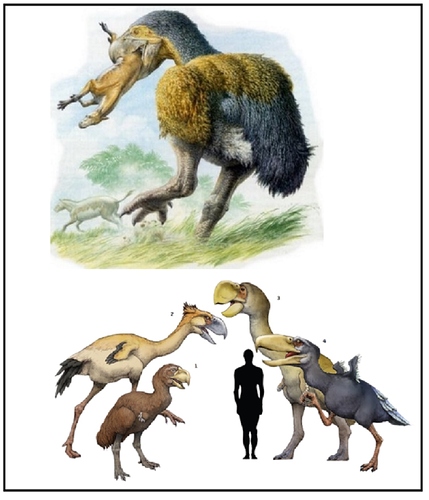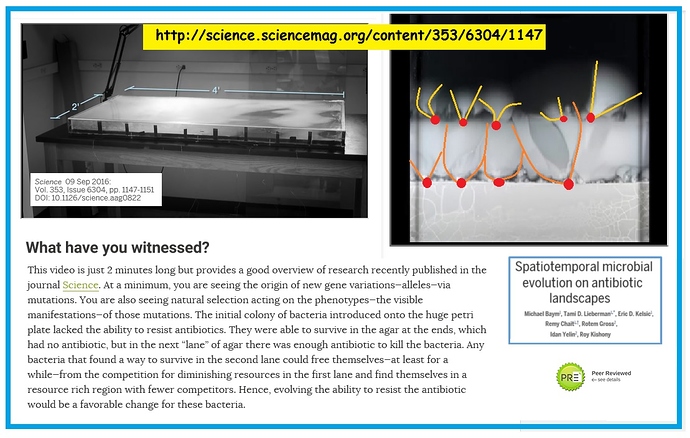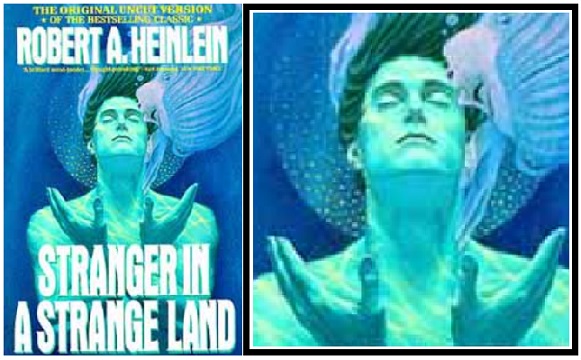You’re welcome. I was here about four years ago for a while but circumstance change. I am back now and enjoying it.
An expansion on my above post. I have been working on this for some time (since I first read Walton in 2009) but have had little conversation with anybody about it. So I am looking for feedback which is another topic).
As to Catastrophe and Renewal in Evolution: Its only a catastrophe if we term it that which depends on our perceptions. Therefore we must look at the presuppositions that we apply to the statement.
Eternal life: I believe we misspeak when we use the word eternal to speak of our “everlasting” life.
Only Elohim God is ETERNAL with no beginning and no end.
Most Dictionaries (not Merriam-Webster) that define eternal “beginning with no end” as the primary definition followed by everlasting as a synonym. But the distinction of " with beginning and lasting forever", is a categorical difference in quality and quantity from eternal!
We receive everlasting life through Yeshua (Jesus) because of his gift of Salvation (Yeshua and Yahshua in Hebrew). We have a beginning, therefore are not eternal. The word everlasting is the word most often used in the original King James and many other earlier English translations.
The application to this topic is that it makes a difference to our perception of the establishment of humans according to an Evolutionary Creation. Mortality is established from the beginning as part of the evolutionary process of life–all life–and the gift of Everlasting Life provisionally provided _emphasized text_to mankind through two actual people Adam & Eve. To get this they had the choice to eat from the Tree of Life, instead they chose the Tree of Knowledge of Good and Evil. They were still mortal, doomed to die, just as they were before they ate. But, they now knew the consequences of their act, where before they were ignorant. That knowledge is what is passed down to all of us since then. So we intrinsically know we are doomed to die. And react to it. That death is just that, the knowledge of death, formerly unknown to mankind, in which they will be treated just as an animal that died in the Garden. The perversion of death is the application of it to a provisionally everlasting soul, and our mistreatment of death by indiscriminate killing of animals or people (see the Levitical laws for limits on both).
Therefore the life of all living organisms, including humans is mortal and “of dust you are made and to dust you shall return”. So our friends and neighbors who do not receive Everlasting Life are doomed to their already existing mortality. That leads us to the rethinking the mechanism, and theology, of Hell and Eternal Damnation as an everlasting fire. The end result is the same as all organisms from the beginning. The difference is a person’s “soul” which is not everlasting is burned with their (provisional) body then–poof. Gone.  Again, no lasting harm, no waste. The only everlasting results would be our memory of those who we loved and knew, and yet, “…there will be no tears or sorrow”.
Again, no lasting harm, no waste. The only everlasting results would be our memory of those who we loved and knew, and yet, “…there will be no tears or sorrow”.
To the topic at hand: People instinctively react with revulsion (by varying levels) to an animal’s death. We don’t like it and transfer our revulsion of death to animals, no matter in what epoch they lived.
That death is part of the design of the creation from the beginning, however perverted it has become now, and should not be a reason for us to look askance at Elohim’s wisdom in the design of the cosmos. Catastrophes only occur to humans by our own hand or the effects of evil in the world (Satan’s doom and yet another topic).
On the other hand, I sincerely hope (without scriptural support) that my two late Golden Retriever mix, Misty and Mallie will be with me in the New Earth.


Obviously there is much more to be explored and would be off-topic here.
Any comments? Fire Away!
Respectfully, Ray

 Thanks for sharing your thoughts.
Thanks for sharing your thoughts.


